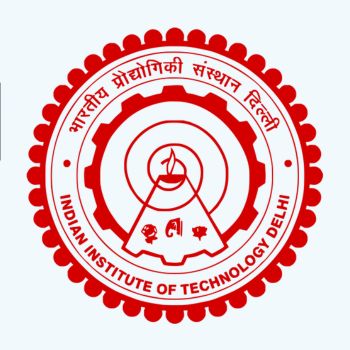Let’s celebrate Engineers Day by understanding the 7 Reasons to Choose Engineering as a Career and appreciating engineers’ innovation, creativity, problem-solving and other skills!
About Engineering
Engineering is a vast area that utilizes science and mathematics to produce, plan, construct, and manage systems, structures, equipment, and procedures. Engineers work on feasible solutions for real-world challenges. Engineers have a range of responsibilities based on their expertise. This is a crucial field that propels progress, elevates living standards, and tackles the most urgent issues facing humanity. It presents many career paths for individuals to impact the globe significantly.

Top Engineering Fields
The engineering field presents numerous career paths tailored to an individual’s interests and abilities. The trending engineering branches are mentioned below!
- Computer Science and Engineering (CSE): The demand for CSE as a BTech stream is skyrocketing due to the ever-increasing significance of technology. This is evident in the rise of software development, artificial intelligence, data science, and cybersecurity.
- Electronics and Communication Engineering (ECE): ECE remained a popular choice, focusing on electronics, telecommunications, embedded systems, and IoT technologies.
- Mechanical Engineering: Mechanical engineering has many applications in industries such as automotive, aerospace, manufacturing, and energy, making it a versatile field that remains relevant.
- Information Technology (IT): IT-focused BE/B. Tech programs emphasize software development, network management, and system administration, catering to the IT industry’s needs.
- Electrical Engineering: Electrical engineers continued to be in demand for roles related to power generation, distribution, renewable energy, and automation.
- Artificial Intelligence and Machine Learning: The rise and application of AI and ML in various industries have led to a surge in the popularity of BTech programs specialized in these fields.
- Data Science and Analytics: BE/BTech programs with a focus on data science and analytics prepared students for roles in data analysis, big data, and business intelligence.
- Biotechnology: A BE/BTech degree in Biotechnology combines the fields of biology and engineering to create practical applications in healthcare, pharmaceuticals, and bioprocessing.
- Civil Engineering: Civil engineering remained relevant for infrastructure development, including construction, transportation, and urban planning projects.
- Environmental Engineering: This specialization gained prominence due to the increasing focus on sustainability and environmental conservation.
- Robotics and Automation: B.Tech programs in robotics and automation prepared students for careers in robotics design, industrial automation, and autonomous systems.
- Materials Science and Engineering: This stream is solely dedicated to developing new materials that harness the latest advancements in materials technology.
1. Multidisciplinary

Engineers work in various specialized fields, such as electrical engineering, civil engineering, mechanical engineering, chemical engineering, biomedical engineering, and many more. Each field has its own set of expertise and focus.
2. Problem Solver

At its core, engineering is about solving problems. Engineers solve complex problems and design practical solutions, which are intellectually stimulating and rewarding.
3. Collaborators

Engineering projects often require collaboration with professionals from various backgrounds, including architects, scientists, project managers, and technicians.
4. Innovative

It is the duty of engineers to design and develop a variety of products and systems, ranging from bridges to smartphones and manufacturing processes. They relentlessly pursue innovation and strive for perpetual improvement.
5. Global Opportunities

Global opportunities are available to engineers across various fields and specializations. Whether you are a civil engineer, software engineer, mechanical engineer, electrical engineer, or any other type of engineer, there are several ways to tap into global opportunities in your career.
Here are some avenues for engineers to explore:
- International Job Markets: Skilled engineers can avail themselves of job prospects in countries with high demand for their expertise. Countries like the United States, Canada, Australia, and countries in Europe often welcome engineers from around the world.
- Research and Development (R&D): Engineers involved in research can collaborate with international teams on cutting-edge projects and scientific advancements.
- International Conferences and Seminars: Attending and presenting at international engineering conferences and seminars can help engineers expand their network and stay updated on global industry trends.
- Entrepreneurship and Startups: Engineers with innovative ideas can explore global markets by launching startups or collaborating with international partners and investors.
- Remote Work: With technological advancements and remote collaboration tools, engineers can work on global projects while collaborating with international teams from their home country.
- Environmental and Sustainable Initiatives: Specializing in environmental and sustainable engineering can contribute to global efforts to address climate change and promote eco-friendly practices.
- Humanitarian and Disaster Relief Work: They can participate in international humanitarian missions, providing engineering expertise in disaster-stricken areas or regions facing critical infrastructure challenges.
- Language Skills: Learning a second language, significantly one widely used in your field, can enhance your ability to communicate and collaborate globally.
6. Analytical Mind Set

Engineers must possess strong analytical skills to tackle complex challenges, create intricate systems, and make impactful decisions.
Engineers engage in lifelong learning to stay updated on the latest technological advancements, regulations, and best practices in their respective fields.
They have a responsibility to consider safety, ethical considerations, and environmental impact in their designs and projects.
7. Sustainable Career

Engineering is a field with a strong demand for skilled professionals. Engineers will remain a highly sought-after profession in the job market as long as there is a requirement for infrastructure, technology, and innovation, and this is a never-ending process!
Engineers are crucial to technological advancements and solutions that address pressing global issues. They are essential to enhancing quality of life and advancing modern society. Feel Proud to be an Engineer!











